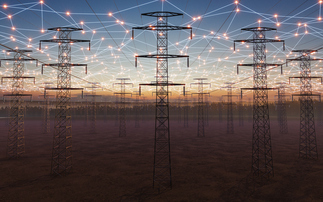
AI was the topic during this Climate Week panel with Gavin McCormick (left) with WattTime and Climate Trace, and Tenika Versey Walker, head of Nvidia's Sustainable Futures program / Credit: Heather Clancy
L'Oreal, Philips, Salesforce and Tesla are just a few of the companies using AI to automate data gathering and decision making
Concern about the voracious energy appetite of large scale data centers used for artificial intelligence isn't dampening enthusiasm for its potential as a tool for fighting climate change. AI humans...
To continue reading this article...
Join BusinessGreen
In just a few clicks you can start your free BusinessGreen Lite membership for 12 months, providing you access to:
- Three complimentary articles per month covering the latest real-time news, analysis, and opinion from Europe’s leading source of information on the Green economy and business
- Receive important and breaking news stories via our daily news alert
- Our weekly newsletter with the best of the week’s green business news and analysis





